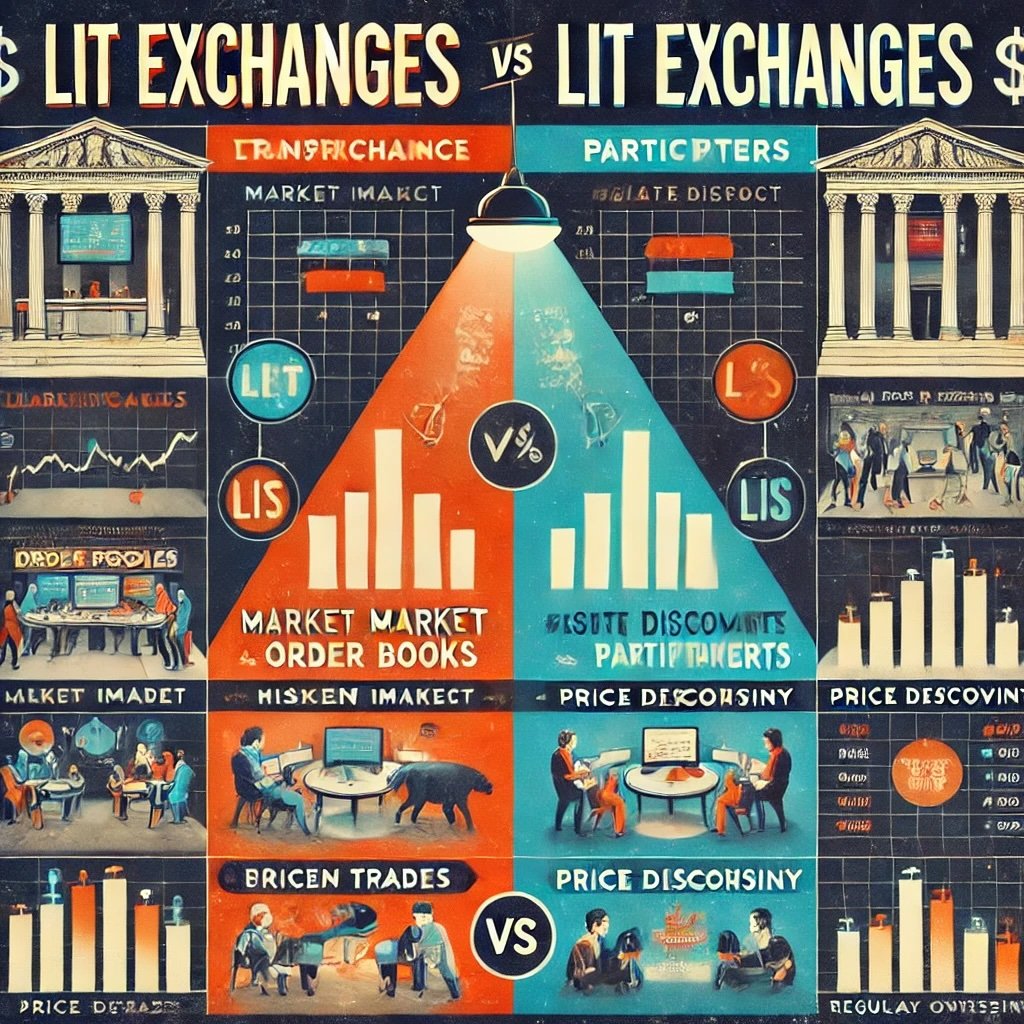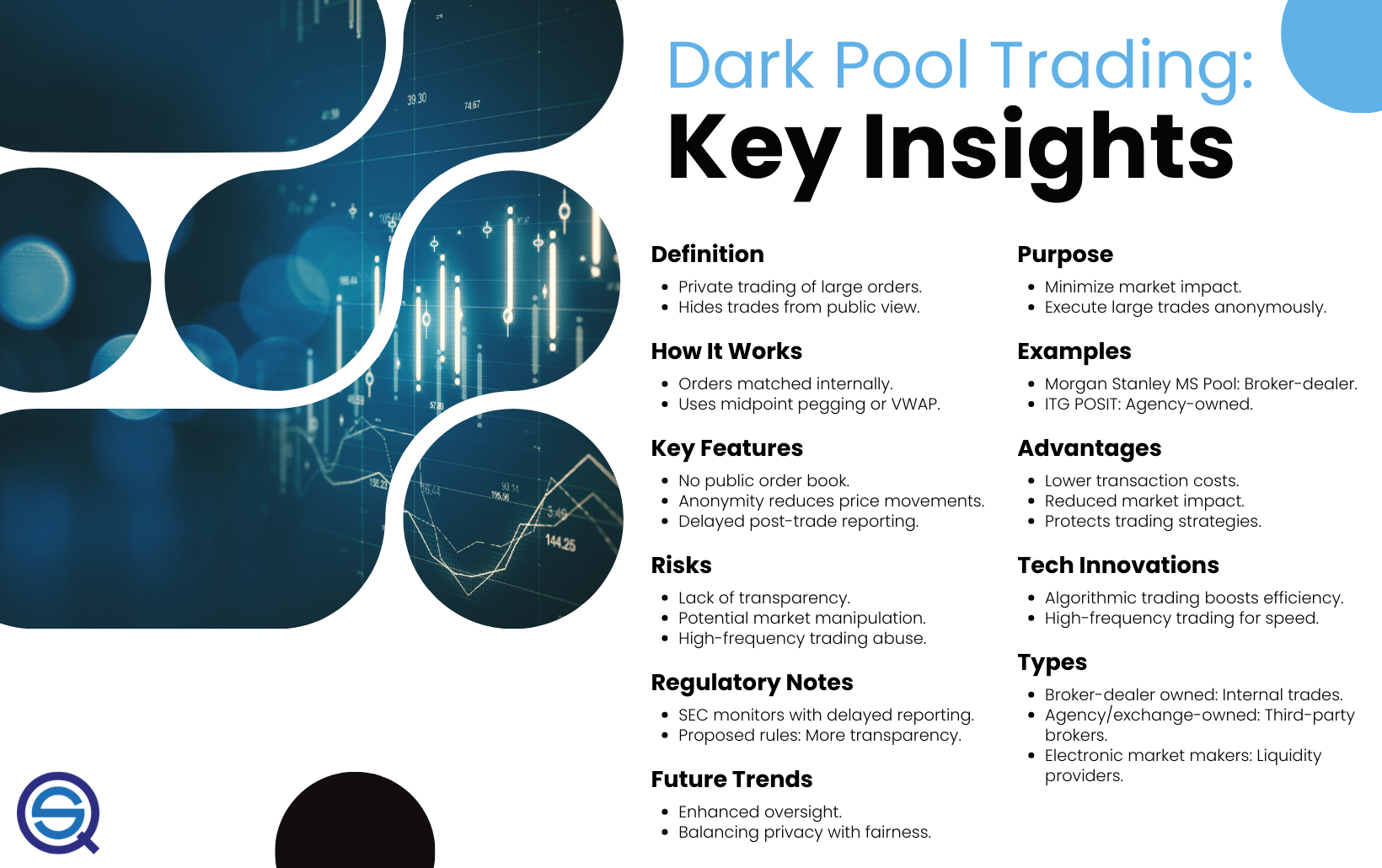Did you know that dark pools are like the secret speakeasies of the stock market—where big players go to trade without the prying eyes of the public? In this article, we dive into the intriguing world of dark pool trading, explaining what it is and how it differs from traditional stock exchanges. We’ll explore why traders flock to these hidden venues, who gets to play in them, and the effects on market transparency and stock prices. Additionally, we’ll discuss the risks involved, the types of investors who typically engage in dark pools, and how these platforms impact liquidity and retail investors. Lastly, we’ll touch on the legal landscape and the role of algorithms in this complex trading environment. Join us as we unveil the advantages and considerations of dark pool trading, brought to you by DayTradingBusiness.
What is dark pool trading?
Dark pool trading is private stock buying and selling outside public stock exchanges. It allows large investors to trade shares discreetly without impacting market prices. Traders submit orders to dark pools, which match buy and sell orders privately. These trades aren’t visible to the public until after they’re completed, reducing market impact. Dark pools help institutional investors execute big transactions without causing sudden price swings.
How do dark pools differ from regular stock exchanges?
Dark pools are private trading venues where large investors buy and sell stocks without revealing their intentions, unlike regular stock exchanges that show all orders publicly. They don’t display order book details, preventing market impact and price swings from big trades. Regular exchanges like NYSE or NASDAQ are transparent, with real-time public order books, while dark pools keep trades hidden until after execution. This secrecy helps institutional traders avoid moving prices and minimizes market noise.
Why do traders use dark pools?
Traders use dark pools to execute large orders without revealing their intentions, avoiding market impact and price moves. Dark pools provide anonymity, allowing institutional investors to buy or sell big blocks of shares discreetly. This helps prevent price swings caused by revealing trade size on public exchanges. They also seek better pricing and reduced market volatility during large transactions.
Who can access dark pool trading?
Institutional investors, hedge funds, and large financial firms can access dark pool trading.
How does dark pool trading impact market transparency?

Dark pool trading reduces market transparency by executing large orders away from public exchanges, concealing trade details until after completion. This limits real-time visibility into market activity, potentially obscuring price discovery and market sentiment. While it prevents market manipulation and minimizes price impact for big traders, it also makes it harder for other investors to gauge true supply and demand.
What are the risks of trading in dark pools?
Risks of dark pool trading include limited transparency, which can hide large orders from the market, leading to potential price manipulation or unfair advantages. It also increases the chance of encountering less regulation, raising the risk of fraud or conflicts of interest. Additionally, because trades aren't visible until after execution, it’s harder to assess market impact, possibly resulting in less favorable pricing.
How do dark pools influence stock prices?
Dark pools can influence stock prices by allowing large trades to happen without revealing intentions, which prevents market impact. When big investors buy or sell in dark pools, their actions stay hidden, avoiding sudden price swings. However, if a significant amount of shares are traded quietly, it can signal institutional interest or concern, subtly affecting the stock's perceived value. Once these trades emerge publicly, they can lead to price adjustments as the market reacts.
What types of investors typically trade in dark pools?
Institutional investors, hedge funds, mutual funds, and large asset managers typically trade in dark pools. They use these private venues to execute big orders without revealing their trading intentions to the market, avoiding price impacts.
How are dark pool transactions reported?
Dark pool transactions are reported to trade repositories or consolidated tape providers after execution, typically within minutes or hours. They are disclosed publicly in aggregate, not individually, to maintain anonymity until the final settlement. Regulators require dark pool operators to report trade details to ensure transparency and market oversight.
What are the advantages of dark pool trading?
Dark pool trading allows large investors to buy or sell significant shares without revealing their intentions, reducing market impact. It offers anonymity, preventing price swings caused by big trades. This can lead to better execution prices and less market disruption. Dark pools also provide access to institutional liquidity, enabling smoother, more discreet transactions.
Are dark pools legal and regulated?
Yes, dark pools are legal and regulated. They are private trading venues overseen by financial authorities like the SEC in the U.S., which set rules to ensure transparency and fair trading practices.
How do dark pools affect liquidity in the market?
Dark pools increase market liquidity by allowing large traders to execute big orders without revealing them publicly, reducing market impact. They provide a private venue where buyers and sellers can match quietly, helping smooth out price movements. This can lead to tighter bid-ask spreads and more efficient trading for institutional investors. However, since trades happen off public exchanges, dark pools can also obscure true market depth and affect transparency.
Learn about How Do Dark Pools Affect Price Discovery?
What is the role of algorithms in dark pool trading?
Algorithms in dark pool trading manage order execution, detect trading patterns, and minimize market impact. They automatically match large buy or sell orders without revealing intentions, ensuring anonymity. Algorithms optimize trade timing and price, reducing the risk of price swings. They analyze market data in real-time to execute large trades efficiently and discreetly.
How do dark pools impact retail investors?
Dark pools hide large trades from public view, reducing market impact for retail investors. This can lead to less price movement distortion from big institutional orders, making markets more stable. However, dark pools may cause less transparency, potentially giving institutional players an advantage. Retail investors might experience slightly less favorable prices or delayed information, but overall, dark pools aim to keep large trades discreet, indirectly benefiting smaller investors by minimizing sudden price swings.
Learn about How Do Dark Pools Impact Market Fairness?
What should institutional investors consider before trading in dark pools?
Institutional investors should consider the lack of transparency, potential for higher trading costs, and limited access to real-time price data before trading in dark pools. They need to assess the risk of price impact, the possibility of less regulatory oversight, and how dark pool trading might affect their overall market footprint. Understanding the rules, fees, and how dark pools can influence market liquidity is also essential.
How does dark pool trading relate to high-frequency trading?

Dark pool trading often involves high-frequency trading (HFT) algorithms. HFT firms use these private venues to quickly execute large orders without moving the market, gaining an advantage through speed. They exploit the anonymity of dark pools to avoid revealing intentions to the public markets, allowing for discreet, rapid trades. This relationship makes dark pools a key tool for HFT strategies aiming to minimize market impact and capitalize on small price movements.
Conclusion about What Is Dark Pool Trading and How Does It Work?
In summary, dark pool trading offers a unique arena for executing large trades away from public scrutiny, thereby impacting market transparency and liquidity. While it provides advantages such as reduced market impact and access for institutional investors, it also introduces risks and complexities that traders must navigate. Understanding these dynamics is crucial for making informed trading decisions. For more in-depth insights and guidance on trading strategies, consider exploring the resources available through DayTradingBusiness.
Sources:
- Dark pool trading strategies, market quality and welfare ...
- Two shades of opacity: Hidden orders and dark trading - ScienceDirect
- Diving Into Dark Pools by Sabrina Buti, Barbara Rindi, Ingrid M ...
- Strategic Informed Trading and Dark Pools by Mao Ye, Wei Zhu ...
- Understanding the impacts of dark pools on price discovery ...
- Volatility and dark trading: Evidence from the Covid-19 pandemic ...